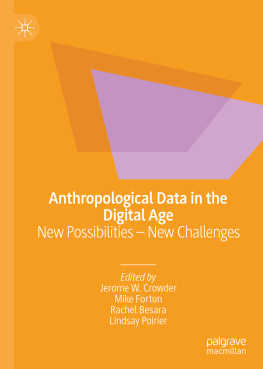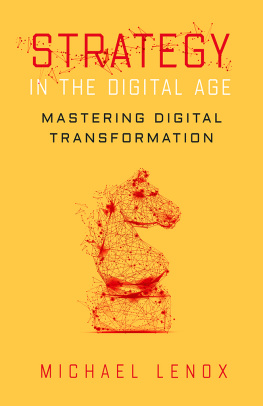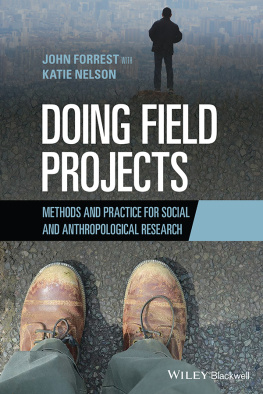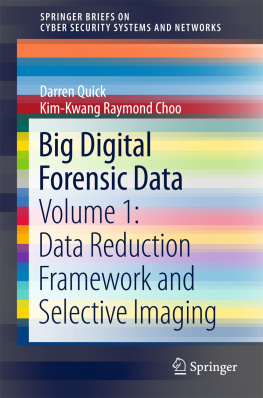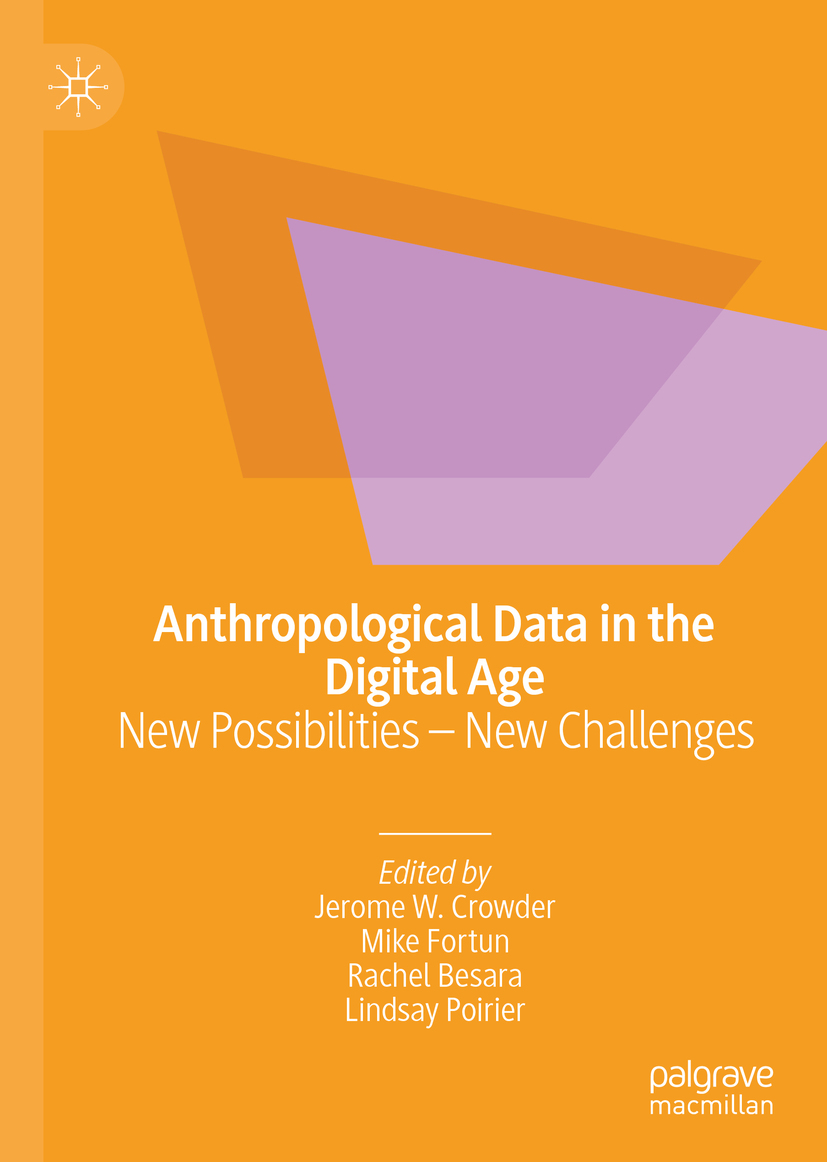Editors
Jerome W. Crowder
Institute for the Medical Humanities, University of Texas Medical Branch, Galveston, TX, USA
Mike Fortun
Department of Anthropology, University of California, Irvine, CA, USA
Rachel Besara
Missouri State University, Springfield, MO, USA
Lindsay Poirier
University of California, Davis, CA, USA
ISBN 978-3-030-24924-3 e-ISBN 978-3-030-24925-0
https://doi.org/10.1007/978-3-030-24925-0
The Editor(s) (if applicable) and The Author(s), under exclusive license to Springer Nature Switzerland AG 2020
This work is subject to copyright. All rights are solely and exclusively licensed by the Publisher, whether the whole or part of the material is concerned, specifically the rights of translation, reprinting, reuse of illustrations, recitation, broadcasting, reproduction on microfilms or in any other physical way, and transmission or information storage and retrieval, electronic adaptation, computer software, or by similar or dissimilar methodology now known or hereafter developed.
The use of general descriptive names, registered names, trademarks, service marks, etc. in this publication does not imply, even in the absence of a specific statement, that such names are exempt from the relevant protective laws and regulations and therefore free for general use.
The publisher, the authors and the editors are safe to assume that the advice and information in this book are believed to be true and accurate at the date of publication. Neither the publisher nor the authors or the editors give a warranty, express or implied, with respect to the material contained herein or for any errors or omissions that may have been made. The publisher remains neutral with regard to jurisdictional claims in published maps and institutional affiliations.
This Palgrave Macmillan imprint is published by the registered company Springer Nature Switzerland AG.
The registered company address is: Gewerbestrasse 11, 6330 Cham, Switzerland
Richard Bruce Freeman (19592017)
We dedicate this volume to Richard, a friend and colleague, who passed away unexpectedly in October of 2017. At the time Richard was the chief editor of this book project, spearheading its development and molding its direction. Richard has been involved with the Society for Visual Anthropology (SVA) for at least two decades and was recently elected to serve on the board beginning at the end of the 2017 meeting. While a graduate student at Temple University, Richard started the Graduate Association of Visual Anthropologists (GAVA) and continued to advise students in that organization that he would meet through SVA. Richard was an avid photographer and excellent visual researcher; his work was published in Visual Anthropology Review and also notably in the volume Viewpoints (2009), edited by Mary Strong and Laena Wilder.
Trained as both a photographer and an anthropologist, Richard returned to school and became a librarian, finding a means for combining his passion for anthropology, research, media practice, and technology. Since 2012 Richard was employed at the University of Florida (UF) as an Assistant University Librarian and the Anthropology Subject Specialist in the George A. Smathers Libraries. There Richard was a trusted and caring colleague. He was always smiling and very friendly with new colleagues, making sure they felt comfortable and welcome. Richard served as a valuable mentor to staff and worked to support his faculty colleagues with his activities in the United Faculty of Florida union. Richard was a very personable professional who left a lasting, positive impact at UF Libraries.
As an Anthropology Subject Specialist, he was able to lend his skills and talents to projects in Oaxaca (with Bill Wood) as well as in Haiti and Miami (with Ben Hebblethwaite). Richard was very interested in the role of archiving big data for social science and humanities research, and had recently uploaded his data on Vodou in Haiti and Miami to the Digital Library of the Caribbean, a multi-institution self-upload collection which he eagerly promoted as an example of the future of digital research ( http://ufdc.ufl.edu/dloc1?n=dloc ). Richard chaired panels and roundtables and offered workshops on this topic at national meetings as well as at the University of Florida. In 2016 he convened a panel on Organize This! Data management for anthropology in the digital age, preserving our evidence for future discovery from which this volume was born.
Richard loved to travel and explore, meet people, and listen to music. We could always count on Richard for good conversation on many different topics ranging from his beloved Cubs, anthropology and digital scholarship, photography and camera gear, and his curious and eclectic taste in music from around the globe. His website best reflects Richards enthusiastic approach to life, his interests, and his friends ( www.visualquotations.com ).
Acknowledgments
Jerome W. Crowder would like to acknowledge the outstanding support and collegiality from his co-editors who helped make this volume a reality. Mike Fortun and Lindsay Poirier readily answered his call and provided excellent feedback to our contributors and reliable assistance throughout the development process. Rachel Besaras vast knowledge and experience with the Information Sciences helped align the technical discussions with the research cases, providing smooth transitions and links between theory and method. He would also like to thank the contributors for their enthusiasm for the theme and their patience with the process as the project evolved. This was an outstanding group effort!
Contents
Jerome W. Crowder and Richard B. Freeman
Michele Reilly and Santi Thompson
Plato L. Smith II , Crystal Felima , Fletcher Durant , David Van Kleeck , Hlne Huet and Laurie N. Taylor
Smiljana Antonijevi
Lynsey A. Bates , Elizabeth A. Bollwerk , Jillian E. Galle and Fraser D. Neiman
Sean Bruna
Sarah Franzen
Diana E. Marsh and Ricardo L. Punzalan
Edward Schortman , Ellen E. Bell , Jenna Nolt and Patricia Urban
Lindsay Poirier , Kim Fortun , Brandon Costelloe-Kuehn and Mike Fortun
Jerome W. Crowder , Mike Fortun , Rachel Besara and Lindsay Poirier
Lisa Cliggett
List of Figures
Notes on Contributors
Smiljana Antonijevi
explores the intersection of communication, culture, and technology through research and teaching in the USA and Europe. She is the author of Amongst Digital Humanists: An Ethnographic Study of Digital Knowledge Production (Palgrave Macmillan, 2015) and a series of peer-reviewed journal articles focused on ethnography of coding (2017); design of digital research tools (2016; Palgrave Macmillan, 2015); data curation; digital scholarly collaboration (2013); communication in virtual environments (Palgrave Macmillan, 2013), and so on.

